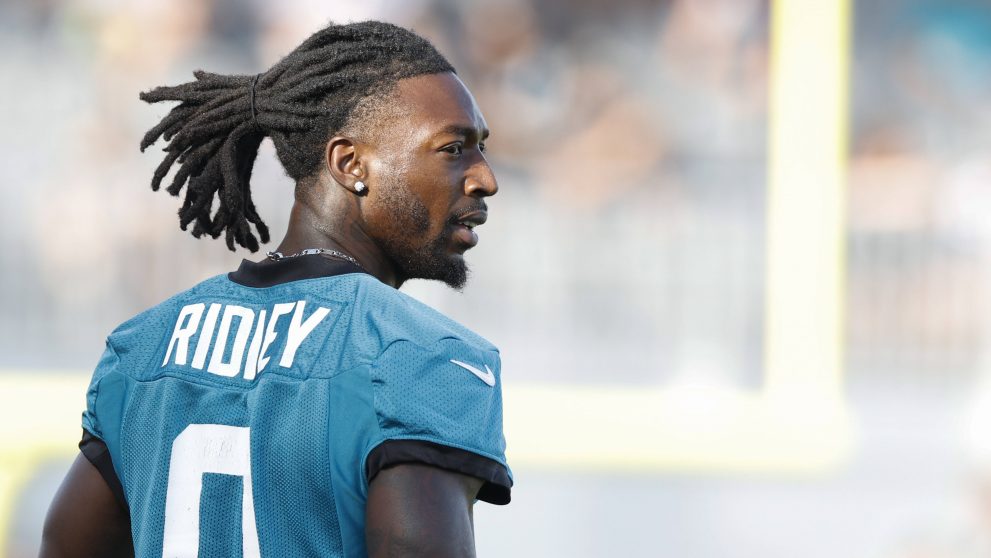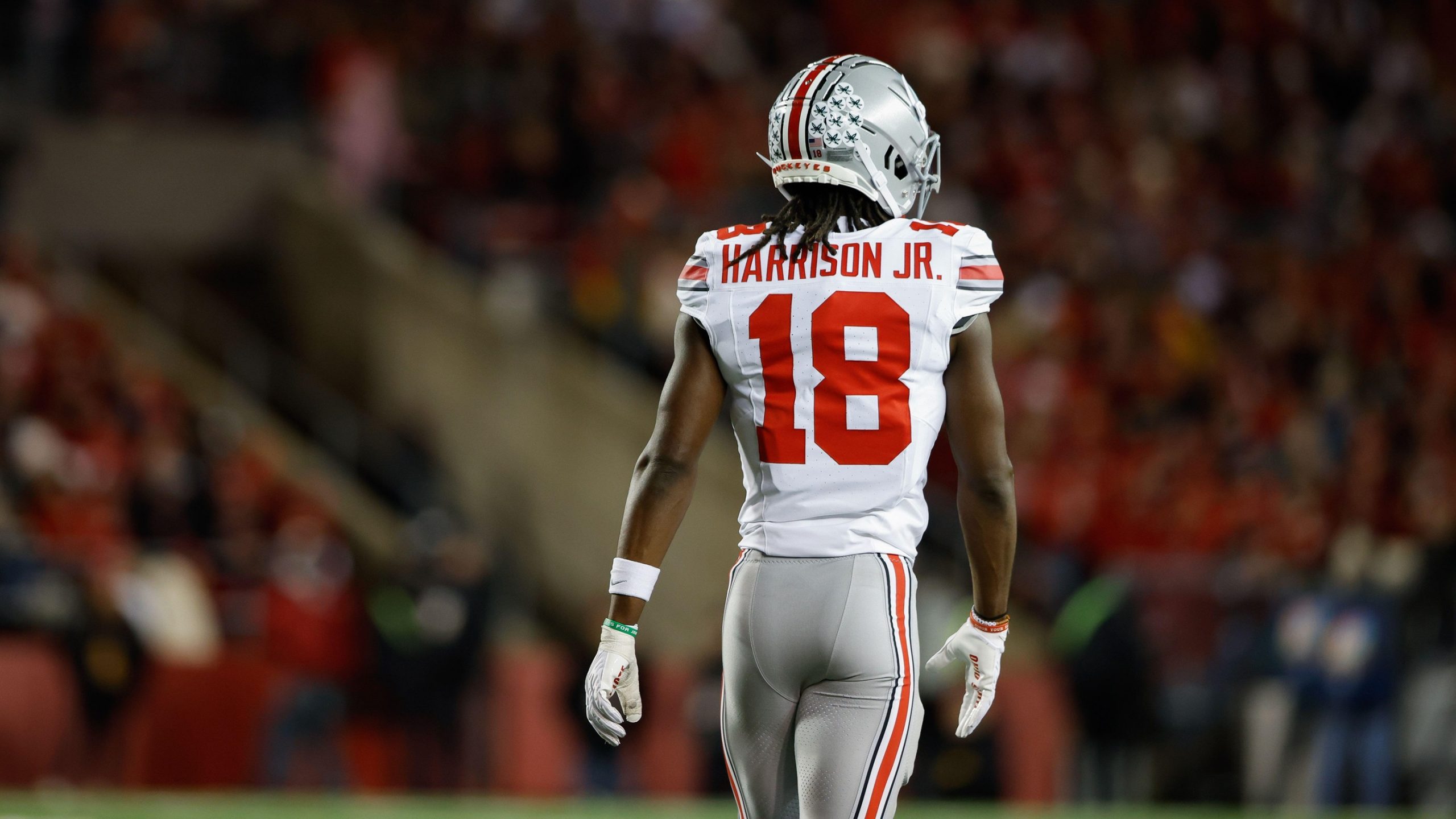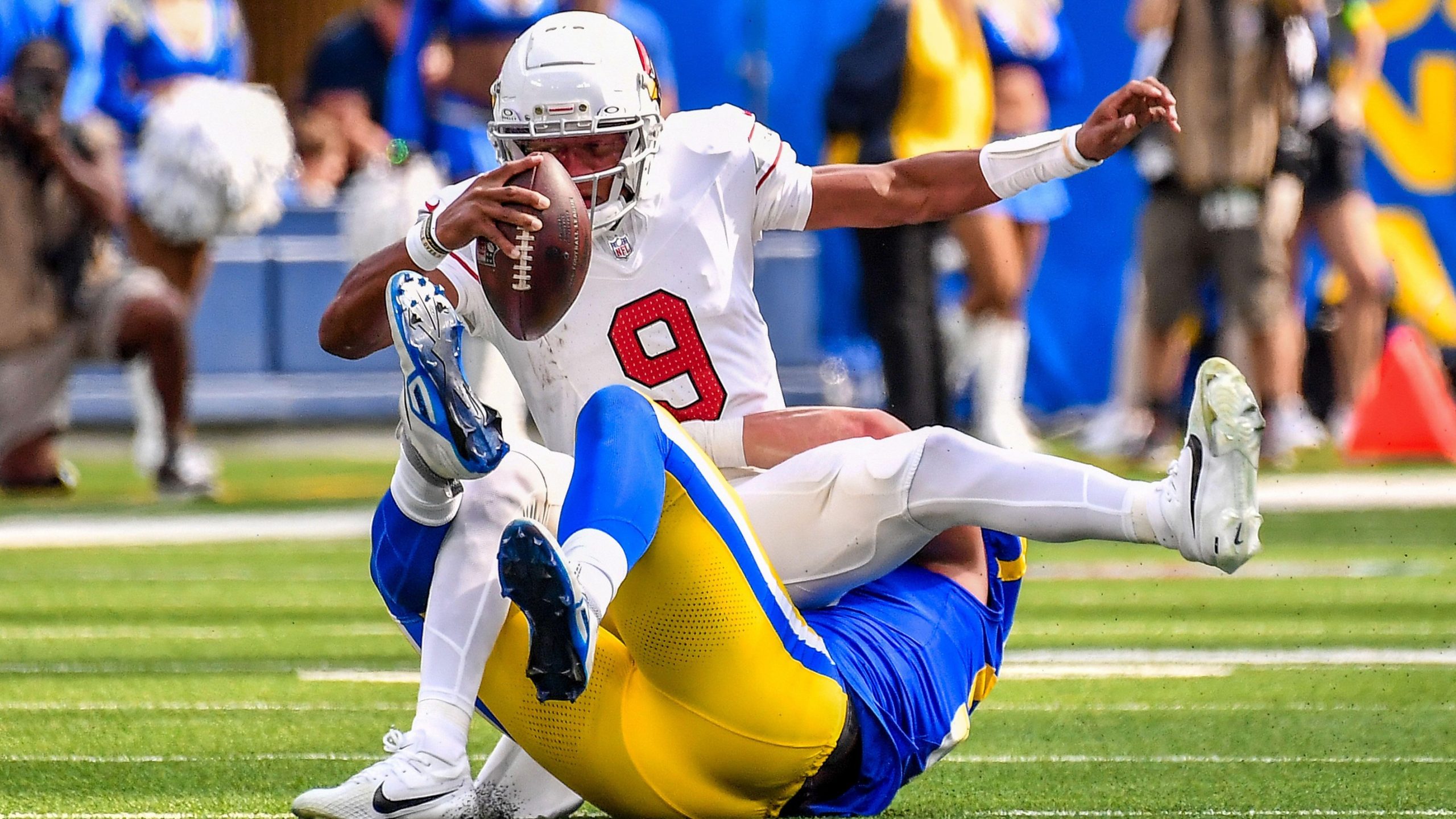Legalized sports betting has exploded in the United States over the past few years, and the once-clear dividing line between professional leagues and gambling has eroded.
Sportsbooks like DraftKings, FanDuel and BetMGM have sponsorships and advertisements everywhere.
Athletes see them, of course, and like so many of their 20-something peers, want to download an app and place a bet during their downtime.
Some of that is allowed, depending on league rules, but some is not, and the NFL has seen a sizable number of players suspended for sports betting over the past two years.
Then-Falcons star receiver Calvin Ridley was suspended a full year on March 7, 2022 for betting on the NFL, and nine more players have been sidelined for either six games or an entire season since then.
Humans are fallible, so it’s foolish to think something like this will ebb anytime soon without substantial changes.
And while continued education may help, there is an interesting idea currently being workshopped.
According to Jim Brown, the Head of Integrity Services & Athlete Wellbeing, North America for Sportradar, there are multiple pilot programs aiming to connect sportsbook operators with a prohibited list supplied by leagues and/or teams, which could catch wagers after they are placed but before an event begins.
Brown said it’s an unproven technology thus far, but progress is being made.
“I think it’s on the cusp,” Brown told Compare.bet. “There have been a couple versions of it and the pilots are underway. They’re a little bit different in how complex they are and what they are trying to do, but yes, I think we are close to having that solution.”
Ridley is an interesting example. If he was caught before that first NFL wager went into effect, could he have gotten off with a stern warning and saved a year of his career?
In Detroit, wideout Jameson Williams has been suspended for the first six games of this season because he gambled within the team facility, even though it wasn’t on the NFL. If those bets were found beforehand, could he have gotten off with a reminder about betting from certain locations?
With the rapid acceleration of artificial intelligence, this technological reality does not seem too far off.
“I think the operators already have advanced ways of detecting someone’s location and who they are,” said Brown, whose company, Sportradar, monitors billions of line movements itself with machine learning. “They are able to use that as well, which I think is why the regulated market place is starting to detect a lot of this type of issue.”
Even if this next step is taken, there are concerns about the practical application.
A player with nefarious intentions can always try to use someone else’s account to place bets.
For those using their own name, a big issue is privacy.
Should leagues have that much of a Big Brother presence on the players who are following the guidelines and not breaking any rules? Is it their business to see how much an NFL player wagers on, say, a Major League Baseball game during the offseason?
“It’s having the technology where you can protect that personal identifiable information,” Brown said.
And then there are the logistics of keeping the list updated.
A league like the NFL is complicated by players shuffling in and out of practice squads on a weekly basis, but that’s nothing compared to the nightmare college athletic departments could face.
“I’m sure ASU has 20-plus sports that they offer,” Brown said. “You take women’s rowing, and that roster may be 75 the first day of tryouts, and the next day it may be down to 50. How do you maintain that list? What are those logistical challenges, and who is responsible for maintaining it?
“Is it the athletic department, the AD, the trainer? Who has that responsibility, and who is going to bear that cost? Those are a lot of the issues they have.”
It seems pretty obvious that the first league to cross this threshold could well be the NFL. It’s already seen some high-profile suspensions because of sports gambling and has both the urgency and financial wherewithal to try to combat it.
“I think the professional leagues are more keen on funding it and more likely to fund it,” Brown said. “They’re doing the responsible thing. They want to protect their brand and protect their athletes. They don’t want this to become an issue. I don’t think anybody wants this to become an issue. But funding is a big issue for the smaller leagues, for collegiate athletics. When you get outside the Big Four, the Big Five, there are not a lot of leagues making money off (sports betting).”
Sports betting is big business that has turned into a key revenue source for the NFL, but the negative headlines involving the player suspensions is something the league would surely love to eliminate.
The education will continue, but it’s hard to believe that alone will stop athletes from betting on sports. So perhaps machine learning can catch the issue before these wagers go into effect.
“Several companies have tried this over the years,” Brown said. “When I was at the NCAA someone pitched it to us, but the logistics behind it is just so hard, and there are those privacy issues and concerns.
“But I think we’re closer. Long-term, yes, (it has potential.)”






